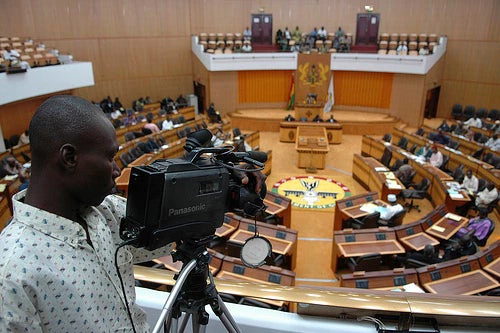In recent days, the media in Ghana have been abuzz with news about the government’s decision to scale up the capitation system as another method for paying health care providers under the National Health Insurance Scheme (NHIS). The Upper West, East and Volta regions of the country are included in the second phase of the capitation scale-up, which was piloted in the Ashanti Region, where the majority of affiliates and providers are reported to have expressed satisfaction with this system.
Why all this buzz? Capitation is another innovative payment instrument being introduced by the NHIS for a defined package of services. Ghana plans to cover 22% of the services paid under the NHIS through capitation, while serious health cases which need referrals would be reimbursed under the Ghana Diagnosis Related Grouping payment method.
Differing from traditional fee-for-service systems, which tend to encourage more consultations, diagnostic tests, over-prescription of drugs, higher surgical rates, and higher costs, capitation offers a vast array of incentives for providers to increase efficiency in their medical practice, since they must absorb any additional cost if they exceed the fixed amount that is allocated per person.
However, capitation on its own may compromise quality through under-provision of services. The experience of other countries that have adopted this method of payment suggests that a strong regulatory system of quality controls and audits coupled with a reliable information system are needed to help realize capitation’s promise of controlled costs without limiting needed care.
The good news is that the Ghanaian NHIS is making progress on both fronts. The scale-up of capitation, along with a biometric registration system for the instant issuance of membership cards, e-claims system, medical quality audits, and robust information systems are part of the NHIS’ arsenal in its quest to expand coverage (half of the population is already enrolled), ensure quality in the provision of care, and contribute to the financial sustainability of the scheme.
The media coverage reflects different points of view about the merits of the capitation system. This is a good omen, since successful implementation of this initiative will depend in large measure on the education, understanding, assessment, and ownership by policymakers, service providers, insured Ghanaians, and the population at large, rather than by a select group of technicians.
I saw something similar while working in Chile in the 1990s, when the new government introduced similar payment mechanisms in the health system. There, wide societal ownership of policy initiatives -- rooted in consultation, open debate, and informed choices -- helped ensure the political and institutional sustainability of the reform process. Learning from pilot experiences, before nationwide scale-up of policy and institutional instruments, is another important measure that has helped to validate and adjust instruments and has guided decisions in many countries on the basis of collected evidence and experience gained.
The roll-out of capitation in Ghana also offers the opportunity of linking public health and clinical guidelines to payment, and hence helping evidence-based medicine become part of current practice and everybody's business (including payers), rather than just an academic endeavor of a few top clinicians.
The policy and institutional measures being rolled out by the NHIS are consistent with good practices at the international level. Data and information from close monitoring and evaluation of the implementation experience will be essential to provide much needed local evidence on what is working well and what needs further modifications to guide the process forward and make adjustments along the way.
At the end of the day, these initiatives are about building health systems as opposed to advocating solely for individual diseases—both are part of the same coin. It is also about developing organizational incentive structures rather than solely incentivizing individual providers. Indeed, the system-wide measures being adopted in Ghana are steps within a framework of “progressive universalism” to facilitate opportune access to health services and financial protection, as recommended by The Lancet Commission’s Global Health 2035 investment framework.
Follow the World Bank health team on Twitter: @worldbankhealth
Related
Ghana: Towards Universal Health Coverage
Ethics, values and health systems
The imperative of integrated health care delivery systems
Health information systems in developing countries: Star Wars or reality?
World Bank and Ghana



Join the Conversation